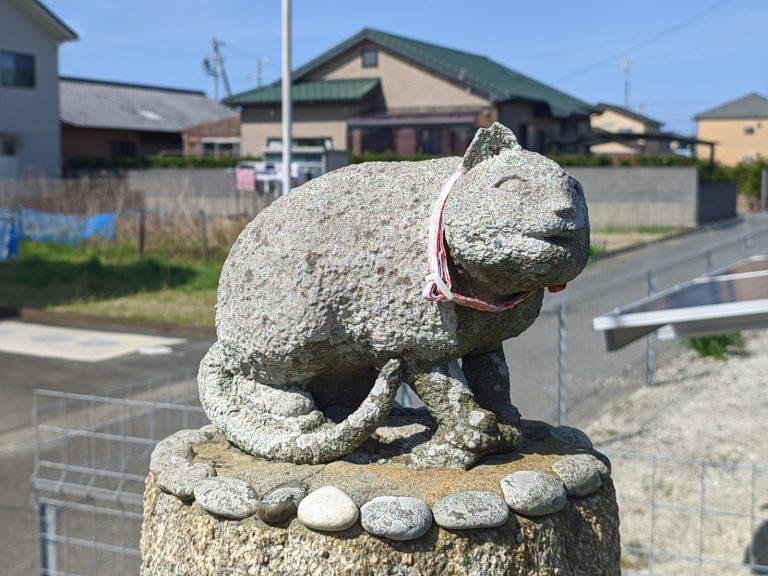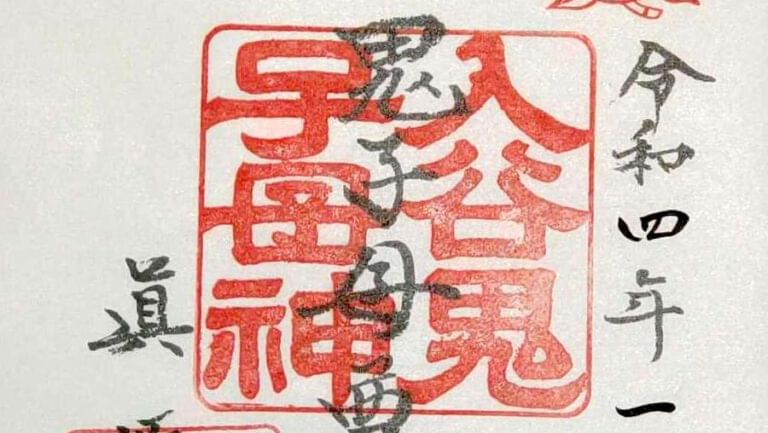Introduction
Uncanny Japan is author me, Thersa Matsuura, exploring all that is weird from Japan.
Strange superstitions and old wives tales, cultural oddities and interesting language quirks.
These are little treasures I dig up while doing research for my writing, and I want to share them with you here on Uncanny Japan.
I hope you like the show.
Welcome to Uncanny Japan
Hey, hey, and welcome to Uncanny Japan. My name is Thersa, and you can call me Terrie.
Perhaps you’re coming here for the very first time. Thank you and welcome.
Perhaps you’re listening again because you heard I re-recorded the first episode, and you got a little curious about that.
Well, thank you too, and welcome again.
About This Re-Recording
Full disclosure, yes, I am re-recording episode number one.
This way, first-time listeners can get more of a true feel for how the podcast sounds now in 2020 than it did three and a half years ago when I started.
Also, I didn’t have my best friend and sound guy Rich Pav’s superb ear and wicked skills. The much better recording equipment I was able to get thanks to my sweet patrons.
That said, for those who are new and interested in what the first episode sounded like, I’m going to keep this short and tack on the original after I’m done.
So after I say bye-bye, just keep listening, if you dare.
What is Uncanny Japan?
Let me give you a real quick idea what I’m trying to do with the Uncanny Japan podcast.
I first came to Japan in 1990 after receiving a scholarship from the Japanese Board of Education to study at Shizuoka University for a year, and I’ve been here ever since.
I’m not good at math, but that’s about 30 years, so I’ve got a bit of a handle on the language and the culture, and that I want to share.
My Writing Background
Because of my love for Japan, especially the older, more dark side, I started to write stories.
I’d research superstitions, myth, folklore, what have you, and I’d use that to drive my fiction.
I’ve since published a bunch of short stories in magazines and anthologies, and two collections.
The first one being A Robe of Feathers and Other Stories, which is kind of mythical realism. It’s “Yōkai Meets the Real World.”
The second book, The Carp-Faced Boy and Other Tales, which is straight-up horror, was actually nominated for a Brom Stoker Award.
I was up against Joe Hill, Stephen King’s son, and Josh Mallerman, who wrote Bird Box, which was made into a movie on Netflix.
I didn’t win. Joe Hill won.
So that’s me.
The Show Format
Now, the show. Uncanny Japan is a short podcast about the strange and fascinating little obscure things I find that I want to share with you.
I use binaural microphones so that you can actually feel like you’re with me here in Japan, sitting next to a rice field full of randy frogs, walking along a beach, or observing a bunch of old ojisan and obachans playing ground golf on a hot summer day.
Introducing Musha-burui
It’s ironic, actually. The topic I did on episode number one suddenly applies to me again right now, but for a different reason.
Let me explain.
The Samurai’s Morning
Imagine a samurai waking up on the morning he knows he’s going into battle.
He’s feeling this weird mixture of fear and excitement, anticipation, but also a little bit of calm, not knowing what the future is going to bring.
As he washes his face and puts on his armor, he trembles.
What is Musha-burui?
This is called musha-burui, or trembling like a samurai, and it describes not just that samurai, but any person who is setting out to do something they’ve perhaps never done before, something scary, but exciting.
Maybe it’s something their body is telling them not to do, but their spirit in their heart says they must do it.
That’s exactly how I felt starting this podcast.
My Personal Experience
I’ve been living in Japan so long with so few English-speaking friends and people around me.
While writing was fine, talking was not something I was good at anymore.
So, yeah, I was scared.
I’ve since gotten used to doing the shows, and I really look forward to researching and recording them.
New Adventures
But I’ve got a new endeavor that I’m going after.
Remember I mentioned Rich Pav, my bestie in Soundman?
Well, we’ve decided to make an 11-episode horror audio drama.
It’s still in the writing stages, but we’ve spent long days outlining and brainstorming and figuring out exactly what we want to do.
I don’t want to speak for him, but I definitely am feeling some Musha Budui surging through my veins.
The show will be called “Some Monsters Don’t Die,” so please keep a lookout for that.
I’m sure I’ll mention it on every episode after 50 until we get it out.
Support and Patreon
We’re going to be giving $5 and up patrons early episodes, behind-the-scenes, bloopers, all sorts of stuff, on top of what I usually do for patrons, which is a bedtime story once a month.
So if you’re familiar with Patreon, please give that a look.
I’ll stop here.
Thank you for listening, and if you want to hear that creaky old-fashioned version that’s a little dusty and covered with spiderwebs, just keep listening.
But for now, I’ll talk to you again real soon. Bye-bye.
Original Episode 1 (2017)
Original Introduction
Hello, Uncanny Japan is author Thersa Matsuura, that’s me, exploring all that is weird from old Japan.
Strange superstitions and old wives’ tales, cultural oddities and interesting language quirks.
These are little treasures that I dig up when I do research for my writing, and I want to share them with you here on Uncanny Japan.
I hope you like the show.
Original Content
Hello, my name is Thersa Matsuura, and this is Uncanny Japan.
I’m an American who has lived over half my life in Japan, in a small fishing town actually, called Yaizu.
I’m also a writer of dark Japanese-themed speculative fiction.
I’ve got one book out, soon to be two.
The first book is called A Robe of Feathers and Other Stories, and the book coming out in late November is going to be called The Carp-Faced Boy and Other Stories.
I’ve also got, again, short stories in magazines and anthologies out there.
So that’s what I do.
Why This Podcast Exists
I’m also starting this podcast, and there is a reason for that, and my reason is I’m fluent in Japanese, and I’ve lived here for so long, and I’m kind of embedded in the culture in this tiny town.
And in order to write my stories, I do a lot of research, and I go to the library or wherever I go, and I read, I translate for myself, old texts, and I talk to family members or the elderly, the grandmas and grandpas in my neighborhood, and I ask them questions about how it used to be, right? Old Japan.
I really like—I’m not a fan of the kawaii culture. I’m not—I couldn’t tell you a manga to save my life or an anime. No. I’m all about the creepy, dark, how it used to be.
So that’s the stuff I research, and that’s what—I use all that, these strange cultural tidbits to inform my stories.
The Gap in English Resources
What I found is I keep notebooks, and I have all this stuff, and then occasionally I will look—I will search around in English on the internet, and I can’t find the stuff I’m digging up.
It hasn’t—as far as I can tell, it hasn’t been translated into English yet.
For years, I’ve been—this has been in the back of my head. I need to blog about this. I need to get this out there, because I think people hear a certain—or they see or they have an image or they have an idea of Japan, but it really is a lot more, and I want to share that, and I want to get that out there.
It’s not just anime, manga, lolita-style fashion or anything like that. There’s—the old stuff is really cool, so that’s what this is. That’s uncanny Japan.
What to Expect
I’m going for weird superstitions, old wives’ tales. I’m going for, like, cultural oddities and language quirks, and that’s what I want to give you.
I’m going to keep it short. The podcast, I don’t want to go over 10, 15 minutes. And another thing that I think—well, it’s kind of my best buddy’s idea, and I kind of yoinked his binaural mics.
You could probably tell that it sounds different. The mics I’m using are, what, I would say 3D. I want to not only tell you about Japan, but I want you to be in Japan with me.
Recording Location
Right now I’m at the ocean. I’m kind of in a cubbyhole because it’s windy today, and I don’t want—you can hear the gravel under my feet. I don’t want the wind to screw up the recording.
So anyway, I’m in this little cubbyhole. The ocean’s over there. I’m not sure if you can hear it.
People are walking around. There were a bunch of old men playing ground golf or gateball.
Kind of games these people in my neighborhood or this town play a lot. You can hear a boat, maybe. I’m not sure. Anyway.
Future Recording Locations
So that’s another thing I wanted to do. I want to go to the beach. I want to go to the harbor. I want to go to the mountains. There are waterfalls, all kinds of insects at night.
I want to record the frogs and the crickets and the festivals. We have all kinds of local festivals that would be fun to hear. I think you’d be interested in listening to.
We have a morning fish market. Not a big one. Kind of small, but even that would be, I think, kind of neat.
So not only do I want to tell you stuff about Japan, I want you to be here with me listening to what it sounds like to be in Japan.
Interaction Welcome
You are invited to tell me what you think. Ask me questions. Tell me to dig something up that you’ve heard about. Tell me I’m wrong. That’s good, too. I’m okay.
The Meaning of Musha-burui (Original Explanation)
Right now, like I said, I’m very new to this and this is number one. So being my first podcast, what I want to introduce to you today is a phrase, a Japanese phrase.
I think everyone’s heard or seen, heard, seen the memes that are running around the Internet. 15 words in other languages that don’t have English equivalents or what else?
25 foreign language emotions that should have an English, English, English equivalent. These, they’re kind of neat, right? But they’re also kind of the same.
Déjà vu, blah, blah, blah. Right, right. You know, we’ve heard those. I’ve read them all. But I have one for you that I couldn’t even tell you when I learned it.
I’m pretty sure it was my mother-in-law that told me. And it was many, many, many years ago. It stuck with me. And I can find the translation in English, but I don’t think it does the phrase.
The Word Structure
It’s only two words. It’s kind of actually one word. It doesn’t do it justice. So it’s also very appropriate to this being my first podcast. And this is why I want to introduce it.
And I use it. I still use it. It’s kind of an old phrase. I have heard it used. I think people would understand it. Maybe not the young people so much. I don’t know. Maybe they would.
It’s “musha burui.” And it’s two characters, two Chinese-Japanese characters. Musha would be the, actually, no, it’s three. Musha. Warrior, warrior, samurai, soldier, right? So that’s a musha.
And burui is furu, which means to shake or to tremble. If you look it up, you’ll find trembling or shaking. Usually shaking with excitement is the only translation I can find.
The Deeper Meaning
But that’s not, like I said, that doesn’t go to where this phrase, what it means. And the way it was described to me was, imagine a samurai warrior waking up in the morning and waking up and there’s a huge battle.
They’re all going to this big battle. And this warrior, he doesn’t know if he’s going to live or die.
And he’s trembling. And he’s trembling. It’s excitement, but it’s also fear.
It’s going into the unknown and you don’t know if you’re going to live or die. And it’s that. You’re going to do your best. You’re just stoked. You’re just like, I’m going in.
Modern Application
Not a whole lot of samurai wandering around the streets of Yaezu these days, but it’s kind of used just for doing that, for when you’re going into something and you’re going to do something and you’re terrified.
But you’re also excited and there’s nothing else. You just can’t back out. You’re just, this is what you’re going to do. You know, come hell or high water, you’re going in there.
And it’s Mushaburi. I just think it’s fantastic. I just love the image. I can just imagine an early morning dawn and the samurai waking up and girting his loins or what have you and going into battle.
And he doesn’t know the outcome and he’s just trembling. That’s so cool. So that’s kind of where I am right now.
Personal Connection
I’m, like I said, I’ve lived over half my life in Japan. Came here in 1990. Learned the language a little bit before I came, mostly after I got here.
I’m married to a Japanese man who doesn’t speak English or listen to me when I speak English, so I speak Japanese.
And most of my days for probably the past 20, 25 years are all Japanese, listening and speaking. So it’s very hard for me to find, to go in and grab words.
They’re starting to fall away from me and my sentences and my thinking too. My thinking is more Japanese than English. So I’m trying to get that back as I do this.
Like I said, I’ll get better. I have to get better, right? Let’s hope.
Episode Conclusion
So yeah, this is Uncanny Japan. Today was Mushaborui. I’m at the ocean. I don’t think you can hear it because I’m in a cubbyhole because it’s windy.
And I’ve already got a whole slew of ideas for other podcasts and I just want to get this one done.
I have to make the first step.
I have to put on my hakama and sheath my katana or whatever it is. And I just have to do this.
And I hope you like it. I will gladly listen to any suggestions or advice or questions or anything you have.
I’m not even sure where this is going to be. I’m guessing iTunes and my blog and I bought Uncanny Japan, the domain name.
So there. Thank you for listening. My name is Thersa Matsuura and this is Uncanny Japan.
Book and Contact Information
Psst. Hey, do you like scary stories? Or maybe you don’t do full-on horror, but enjoy a nice dark tale.
Something creepy involving Japanese folklore and superstition?
Well, if that’s the case, you can sneak on over to Amazon or wherever you like to buy books and look for my two short story collections, A Robe of Feathers and The Carp-Faced Boy.
All you need to do is search for Thersa Matsuura. Let me spell that for you.
T-H-E-R-S-A M-A-T-S-U-U-R-A.
Another place you can find me doing things is on Patreon.
There, once a month, for my $5 and up patrons, I translate, retail, and record obscure Japanese folktales.
Some are dark, some are humorous, some are just weird.
And lastly, another super sweet thing you can do is to write a review on iTunes.
By doing this, you help like-minded people find Uncanny Japan.
It’s a little thing, but it means a lot, and it’s a great big help.
Thank you, I’m Thersa Matsuura, and I’ll talk to you soon.







I love the nuances of a language & culture that is so much older than hours in the US. I remember as a very young man, I visited the museum in NY called The Cloisters. I remember being so taken aback that by our reference point, 200 years was old, yet for most cultures, it’s a blink of an eye.
Love the podcast
Just listened to the first episode. To some extent I think that’s a feeling I regularly have. I used to look at English as a language that has a word to describe everything but guess I was wrong. Looking forward to listening to the other episodes. I have to admit I’m the type that got into Japan and it’s culture through watching anime and I hope the podcast helps in eliminating the one sided view I have of Japan and it’s culture.
Gabus! Thank you for listening. I really want to do more episodes of words that are in Japanese but not in English. I’m writing that on my To Do List right now. Ironically enough, I came to Japan before anime and manga got big, so I’m woefully uneducated in those areas. You said exactly what I want to do: introduce a different side of Japan to people.
I was looking for a new podcast to listen to while trying to sleep.
Well, I listened to the first episode of this one. Failed to fall asleep, but I honestly enjoyed listening. The… emotion or phenomenon described here… is one I’m familiar with, quite well. It’s interesting to learn that there is a specific phrase that describes it so exactly.
I think I’ll try and listen to the secone one. I suppose this is just what happens when you try to fix your sleep schedule.
Liet, thank you so much for listening and commenting. The more recent podcasts are much, much better quality and easier to fall asleep to. I actually do Bedtime Stories on Patreon because my voice infamously makes people sleepy (even me while editing!). Also, I’ve been listening to audio books recently to sleep. I found Lolita read by Jeremy Irons really puts me out. Although I have some disturbing dreams.